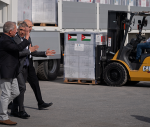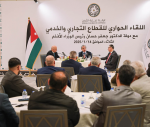You are here
Positive indicators
Mar 30,2017 - Last updated at Mar 30,2017
There has traditionally been much scepticism in our part of the world about Arab summits.
Little or nothing actually emerges from them, the argument goes.
Many expressed the same degree of scepticism about the Arab summit just concluded at the Dead Sea on Wednesday.
Such attitude is, generally, part and parcel of an overall culture of scepticism and cynicism in this part of the globe that has, over the years, become prevalent, infectious and even fashionable.
To be optimistic, even hopeful, about anything in a region full of so many misfortunes and unresolved issues is seen as both odd and foolish.
But the scepticism about Arab summits is also tied to Arab summits in specific and the Arab leaders’ inability to live up to people’s expectations.
Nevertheless, the recent summit is significant in many ways.
No earthshaking outcomes are expected to materialise, but the following two (among other things) are positive indicators that can be built upon.
The first is strong Arab representation and presence.
For years, we have not seen such level of representation at the level of top leadership.
Nearly all major players or heavyweights in the Arab world have attended the summit, unlike in many summits in recent memory where many leaders were absent.
This in itself is an indicator that these leaders see the summit as an opportunity to meet, exchange views, sort out differences and, hopefully, agree on a joint course of action.
Many ask what is the big deal about Arab leaders meeting face to face?
It is a big deal.
In recent years, most problems happening in the Arab world or to the Arab world have been a direct result of Arab fragmentation and inter-Arab differences.
What happened, in other words, happened precisely because the Arabs were not talking to each other.
Meeting, therefore, face-to-face, airing differences and coming to mutual understandings as to what they should be doing about the various challenges plaguing the Arab world at present is crucial.
Crucial is also the conviction that Arabs can collectively do something tangible to influence events in the region.
No one can resolve the various inter-Arab issues satisfactorily and effectively but the Arabs themselves.
For this reason, it is important to keep the hope and the faith in collective Arab action alive.
The second indicator has to do with the fact that the Arab leaders agreed on essentially all major inter-Arab issues.
This is also very significant.
For years, we have not heard a unified position on Israeli occupation, or on the situation in Iraq, Yemen, Libya and Syria.
At the Dead Sea summit, the Arab leaders made their position on most of these issues clear.
Without a unified vision or position, Arabs do not have a chance to lift themselves from the current quagmire. With it, they do.
What remains to be done now — what should be done — is rigorous follow up to make sure that what was agreed upon gets implemented.
At least some or much of it.
Perhaps the Dead Sea summit could be a turning point in inter-Arab relations, and perhaps Arab countries could from now on exercise a potential force that they have been neglecting for some time: their collective will and power.













